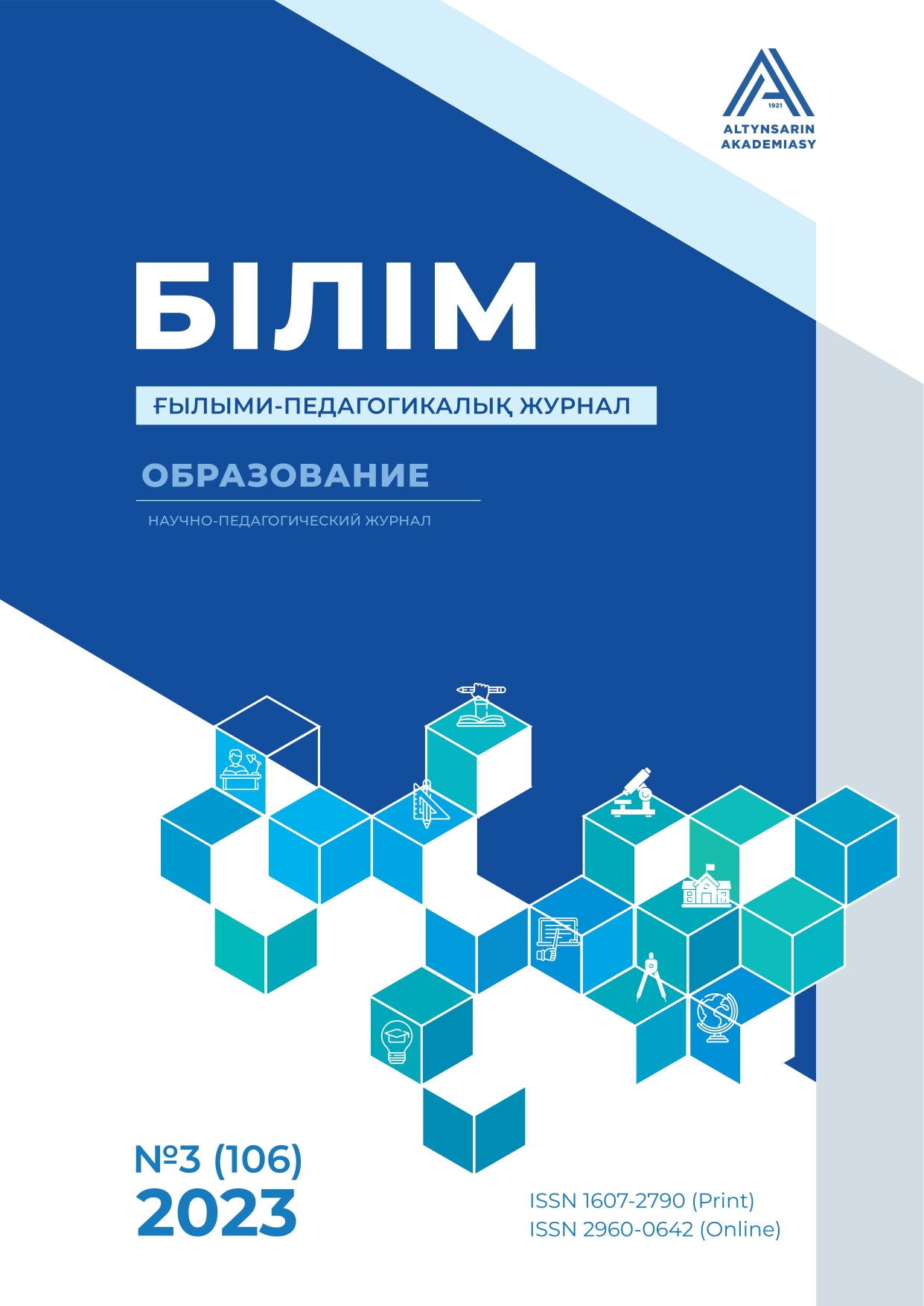Reflexive competencies of teachers in the context of inclusive practice in educational institutions of the Republic of Kazakhstan: research results and development paths
DOI:
https://doi.org/10.59941/2960-0642-2023-3-182-191Keywords:
children with special educational needs, inclusive education, inclusive practice, reflexive competencies, skillsAbstract
Currently, much attention is paid to the development of reflexive competencies of teachers. The possession of these skills helps teachers formulate expected results, comprehend the achievement of work goals, identify and make adjustments to the trajectory of development, as well as self-improvement in professional and personal terms. Which, in turn, will ensure the formation of a comfortable safe environment for all participants in the educational process. At the same time, it is relevant to study the reflexive skills of teachers, taking into account the individual capabilities and special needs of all children. This article presents the results of the research conducted by the authors of the article with the aim of studying the ability of teachers to research and analyze their activities in the conditions of inclusive education, as well as the ways of developing reflective competencies of teachers. In particular, in the article as recommendations for teachers on the development of reflective competences in an inclusive environment, brief information is presented on five features of reflective learning in an inclusive environment, three main elements of professional mastery in inclusive education, as well as information on the main stages of the cycle of reflection, developed by foreign my student. It should be noted that these recommendations are useful for teachers when organizing the educational process taking into account individual opportunities and special needs of all children.
 ҚАЗ
ҚАЗ РУС
РУС ENG
ENG
